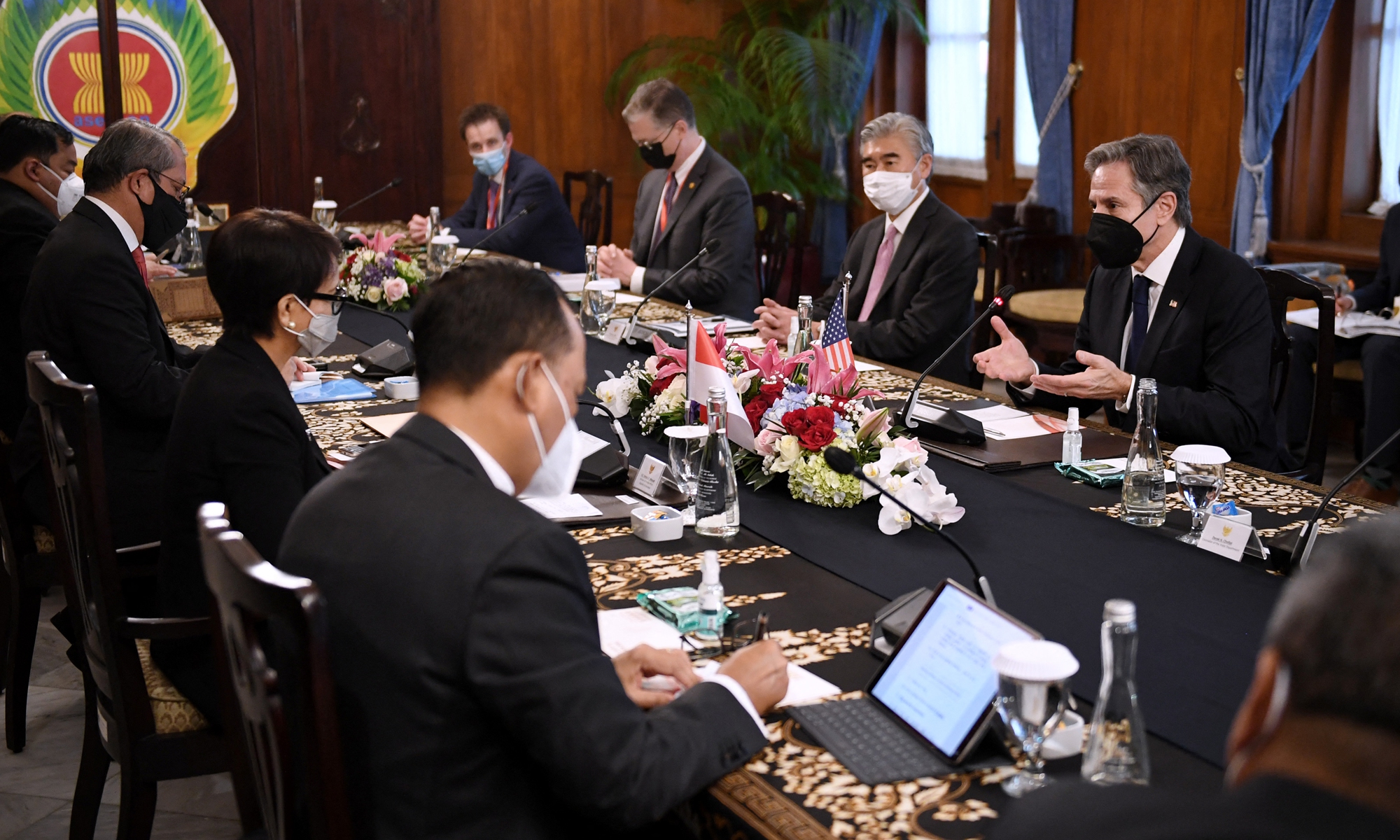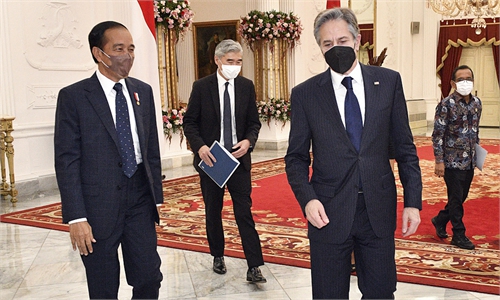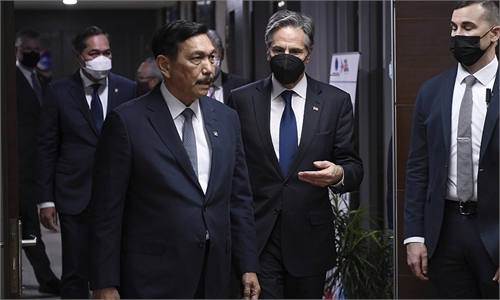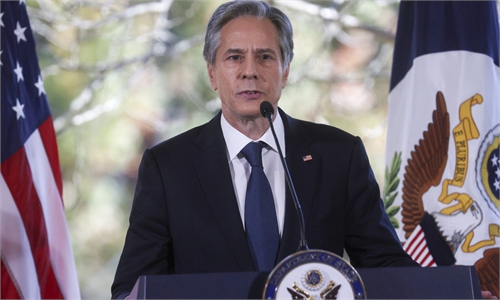
US Secretary of State Antony Blinken (right) meets with Indonesian Foreign Minister Retno Marsudi (second left) at the Pancasila Building in Jakarta on December 14, 2021. Blinken promised to enhance economic and security cooperation with the region. Photo: AFP
US Secretary of State Antony Blinken awkwardly cut short his Southeast Asia tour on Wednesday after a journalist traveling in his delegation tested positive for the coronavirus. Under the grave situation that more than 50 million COVID-19 cases have been recorded in the US, over 800,000 deaths and another potential surge in infections due to colder weather and the highly transmissible Omicron variant, Blinken was shuttling among several Southeast Asian countries with the purpose to counter China.Besides spreading a political virus, he and his delegation have posed a real threat of spreading the coronavirus to the host countries. Thank God, many Chinese netizens thought, they won't come to the Beijing Winter Olympics next February.
Blinken started his Southeast Asia visit in a high-profile way. When delivering a speech in Indonesia, the first stop of his tour, Blinken spared no efforts to propagate so-called US commitments to security and prosperity in the Indo-Pacific region. He said the US defends the "rules-based order" while accusing China of engaging in "aggressive actions" in the region. He claimed that both regional countries and the US want China to change. The New York Times commented that Blinken's main message was that "the US is a better bet as a partner than China."
The US wants to show off its power and influence in Southeast Asia. However, Blinken's trip ended in embarrassment because of the COVID-19 infection. If the US wants to foster normal cooperation with Southeast Asian countries, a virtual meeting would be enough under the backdrop of the pandemic. Is it really necessary to make such a high-profile visit, especially as senior US officials including Vice President Kamala Harris and Secretary of Defense Lloyd Austin have successively visited the region this year?
Essentially, Blinken's trip to Southeast Asia is to counter China - he smeared China, tried to drive a wedge between China and Southeast Asia and attempted to rope Southeast Asian countries into Washington's anti-China camp. But what this trip has caused in Southeast Asian countries is not resonance, but vigilance. It is the US' own wishful thinking to turn Southeast Asian countries into China's enemies. In Southeast Asia, two-way trade with China reached $685 billion in 2020, more than double that of the region's trade with the US. No country would sacrifice such a huge benefit to be used as a US trigger against China.
The Trump administration lowered the strategic level of Southeast Asia to the US, leading to a trust deficit. Although Biden has attached more importance and invested more in the region, the trust deficit is not easy to repair.
"The Biden administration, to be honest, is treating Southeast Asia as a pawn in the major power game. Fixing ties is not a goal, but an approach," Zhang Tengjun, an assistant research fellow at the China Institute of International Studies, told the Global Times, adding that by doing so, the distrust of regional countries toward the US will continue, and the US can hardly rebuild its credibility and leading influence in Southeast Asia.
A country's international reputation and charm are closely related to its domestic performance. Since there are too many domestic woes in the US, how can other countries be convinced of any promises made by the US? Washington talks about cooperation, yet it is making strategic calculations behind the scenes. The US has neither strength nor the moral appeal to persuade Southeast Asian countries.



